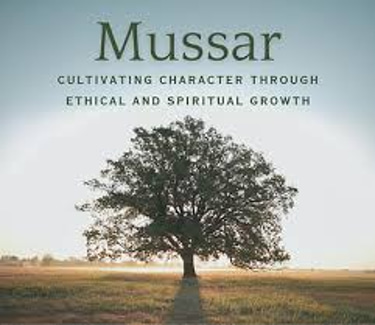Introduction
Practicing humility is a cornerstone of personal growth and spiritual development. It allows individuals to recognize their limitations and embrace the strengths of others, fostering connection and understanding. Engaging with mussar, a Jewish ethical tradition, provides practical tools to cultivate humility through self-reflection, awareness, and moral guidance.
Mussar encourages individuals to explore their character traits and align their behavior with their values. By integrating humility into this practice, one can develop a greater sense of empathy and respect towards others, enhancing their relationships and community ties. Cultivating humility is not merely about diminishing oneself; it’s about elevating the collective well-being.
In a world that often rewards self-promotion, practicing humility through mussar stands out as a powerful alternative. This approach not only nurtures personal integrity but also fosters an environment where mutual respect and support can flourish.
Practicing Humility in Daily Life
Practicing humility involves shifting focus away from oneself. It encourages individuals to acknowledge the contributions of others.
Daily Practices
Active Listening: Engaging fully when others speak fosters respect and understanding. It allows for deeper connections.
Gratitude Journaling: Writing down things to be grateful for helps recognize the support from others. This reinforces humility.
Acknowledging Mistakes: Admitting errors openly demonstrates strength. It shows a willingness to learn and grow.
Mindful Interactions
Complimenting Others: Offering genuine praise can uplift others and strengthen relationships. It emphasizes collective strengths.
Volunteering: Giving time to help others cultivates a sense of community. This practice shifts the focus from self to service.
Self Reflection: Humility can also be practiced through self-reflection. Individuals can take time to ponder their values and how they relate to others.
The Essence of Mussar
Mussar is a Jewish ethical, educational, and cultural movement that emphasizes personal growth and character development. It encourages individuals to reflect deeply on their behavior and moral choices.
Central to Mussar is the concept of middot, or character traits. These traits include:
Humility
Patience
Gratitude
Compassion
Practicing Mussar involves systematic self-examination. Individuals engage with texts, often from traditional sources, and apply lessons to everyday life. This process promotes greater self-awareness.
Key components of Mussar practice include:
1. Study: Engaging with Mussar literature to understand character traits.
2. Reflection: Contemplating personal actions and motivations.
3. Action: Implementing changes to improve behavior and relationships.
Mussar is not merely theoretical; it requires practical application. Through consistent practice, individuals cultivate ethical awareness and prioritize their growth. Community plays a vital role in this process. By sharing experiences, individuals enhance their understanding and commitment to personal improvement. Mussar encourages a lifelong journey towards better character. It provides tools for navigating moral dilemmas while fostering compassionate living.
Foundations of Humility in Mussar
Mussar is a Jewish ethical discipline that emphasizes character development and personal growth. Humility forms a core component of this practice.
Key principles include:
Self-Awareness: Recognizing one’s limitations and imperfections is the first step in fostering humility.
Gratitude: Cultivating an appreciation for others and the contributions they make encourages a humble outlook.
Listening: Active listening helps one value diverse perspectives and reduces the tendency to dominate conversations.
Practicing humility in Mussar involves various techniques:
1. Reflection: Regular self-reflection helps individuals identify areas where they may exhibit arrogance or pride.
2. Journaling: Writing about personal experiences can illuminate lessons learned from humility and the impact of actions on others.
3. Peer Feedback: Engaging with others through constructive criticism can provide insights into one's behavior and foster growth.
Humility in Mussar also includes understanding one’s place within a larger community. This awareness shapes how individuals interact with others and recognize shared humanity.
By practicing humility, individuals can enhance their spiritual journey, leading to deeper connections and a more meaningful life.


How to Practice Humility
Ethics
Explore spiritual growth through Mussar practice today.
© 2024. All rights reserved.
